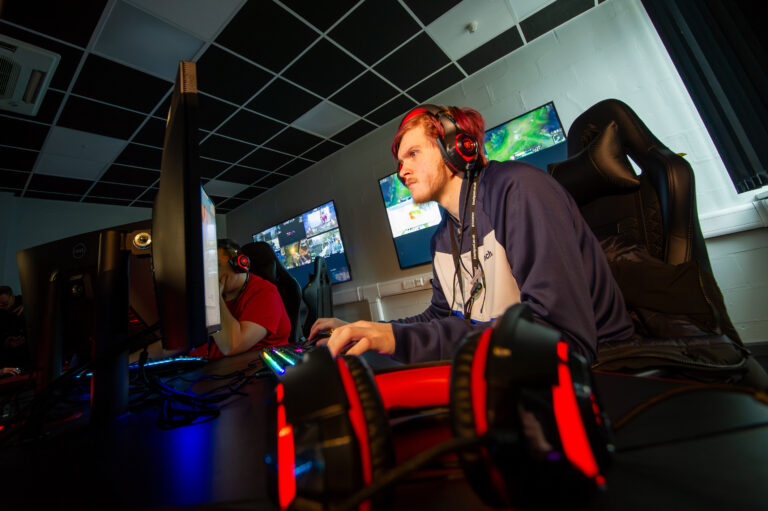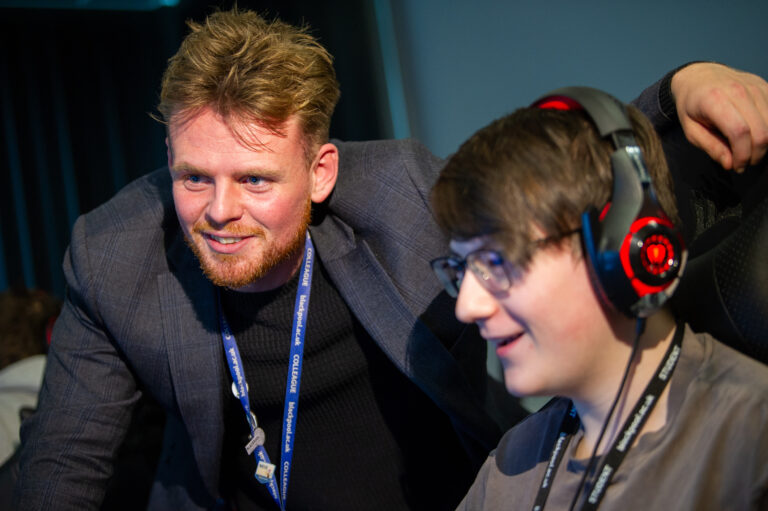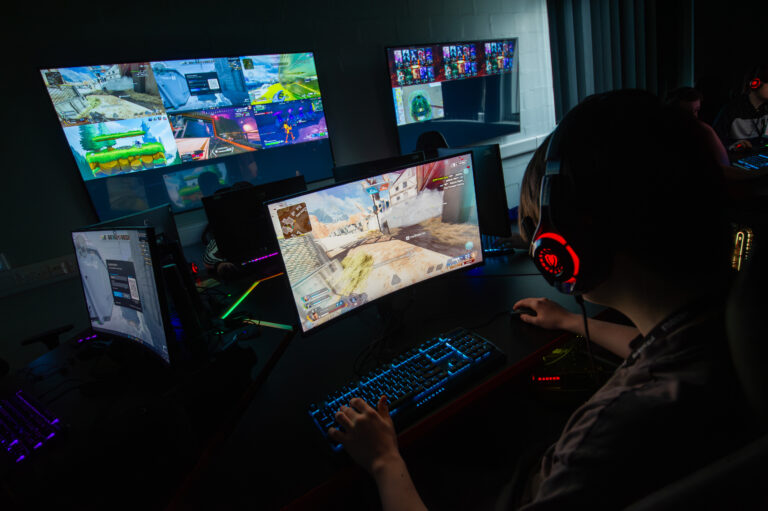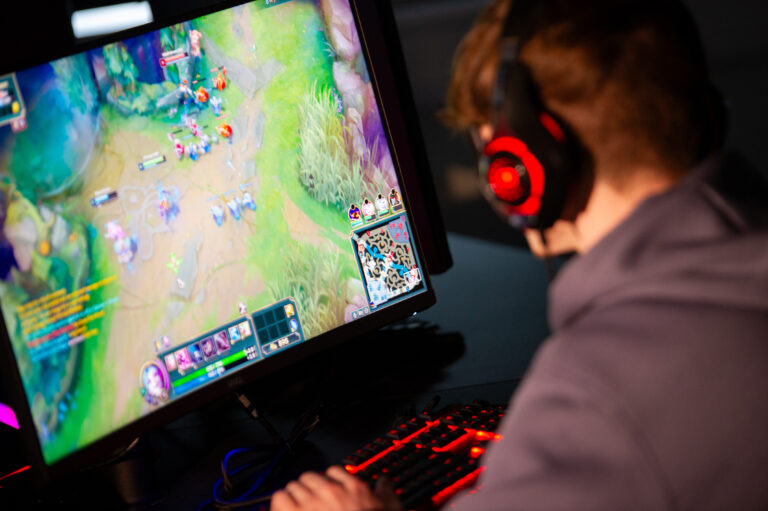
The dark room – illuminated by rainbow-coloured lights – has been causing quite a stir at Lancashire and Cumbria Institute of Technology.
It’s no normal classroom, filled with students in headphones working their way through virtual worlds as lights beam out from their screens.
The hi-tech look continues, with large gaming chairs and huge screens across one wall to show their tutor their progress.
“We have students walking past all the time and wanting to come and have a look – we can hear them whispering as they go by,” says James Dunkerley, programme leader of the course based at Blackpool and The Fylde College.
It might look all fun and games but this course offers serious career prospects in an industry that’s on the up. B&FC has ambitious goals for it, and the IoT, to become known as an esports leader – and it’s making great strides to get there.

The college is one of seven academic partners that teamed up to form Lancashire and Cumbria Institute of Technology in 2023, established by the Department for Education (DfE) to deliver world-class higher technical education. L&CIoT is a collective of colleges, universities and employers working together to boost productivity and economic growth – addressing skills gaps and anticipating future needs. As part of this, the IoT has access to a £300m capital funding pot to create state-of-the-art industry-standard facilities and infrastructure, some of which has already benefited the member colleges and universities in Lancashire and Cumbria. That funding is benefiting the first cohort of students, including those studying the two-year BTEC Level 3 National Extended Diploma in Esports, a course that is equivalent to three A Levels. James, who started looking into esports as an offering in January 2023, says it was clear at the outset that there had to be a strong career-focused element to each of the 24 modules on offer. “The esports industry is going to really blow up and that creates huge opportunities for our students to forge careers in the areas that interest them,” he says. “People often look at the course and think it’s about being a gamer, but that’s only part of it. “We cover how to be a good esports player, of course, but we also look at the business of esports, the psychology, health and wellbeing of players, creating your own esports brand and esports broadcasting – there’s a whole range of roles. “Not everyone who studies sports will become a footballer – some may go into physiotherapy roles, become coaches or work in the business of football, and this is the same.”

The IoT is serious in its goal to become a leading light in esports, sponsoring the EuropaHalo 2023 esports tournament in Blackpool, which attracted teams from across the world to compete.
Students attended to gain an insight into the world they’re studying and there are to put together a team of students to compete on behalf of the IoT and, possibly, the Blackpool area. Employers will also be involved throughout courses, shaping content, providing placement opportunities and visiting to speak to classes.
“We’re working with local industry because these are the students who are going to be working for them in years to come,” says James. “Getting involved in esports events is important because it allows us to really immerse the IoT and the students in the world of esports to they’re prepared for the opportunities available to them.”
For the first intake, which started in September 2023, all 20 available places were filled and there are aims to expand this in the future. The course has already received interest from current year 10 pupils in the area, suggesting there’s a demand, and there are plans to offer esports as a degree from 2025.
There has been one stumbling block that tutors have encountered – not everyone has immediately bought into the idea of the course.
“We’ve had to get some parents on side and show them that the esports course isn’t just about playing games, as some were a little apprehensive,” says James. “In some cases, we’ve contacted parents directly and, once we’ve explained the real career opportunities and the breadth of content we cover, they’ve been more than happy with the course.
“That shows us that there’s still some education to be done around such an up-and-coming are of the tech industry, but we’re keen to lead the way on that in Lancashire and Cumbria.”

Blackpool creative agency Jellymedia, which works in the esports industry, partnered with the IoT to help create the syllabus and gave students opportunities on the EuropaHalo event.
Jamie Hughes, head of business development, said: “The challenge is the esports industry is relatively new and still finding itself, but it is something that’s growing and will continue to grow – and we’ll need the talent to keep it going.
“I advise on the curriculum in terms of ways to teach it and experts to use, and that can be a challenge because it’s an ever-changing landscape.
“The college has an esports room, but that’s only the tip of the iceberg. The course covers skills in coaching, mentoring and counselling, as well as social media, PR and events organisation – skills that can be transferred to other roles away from esports.”
By co-creating the course, Jellymedia is ensuring the talent it may need in the future is nurtured. Jamie adds: “We recruit in the local area and we hope some of the students on the course find their way to working here. By businesses getting involved in education, we ensure that the course content is up-to-the-minute, from people working in the industries daily."